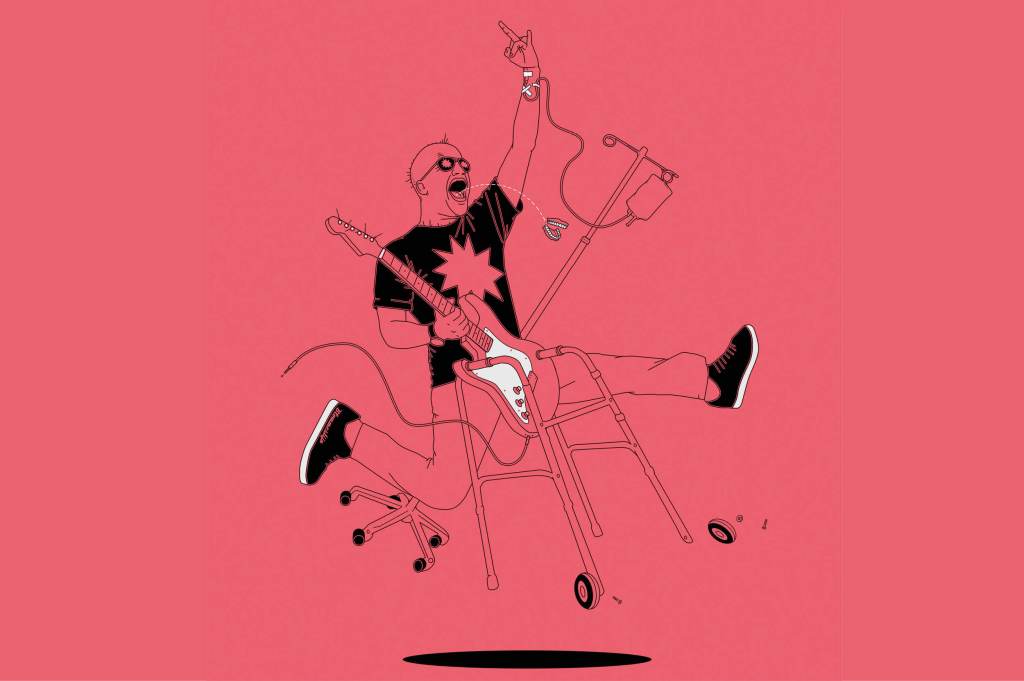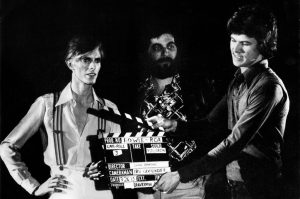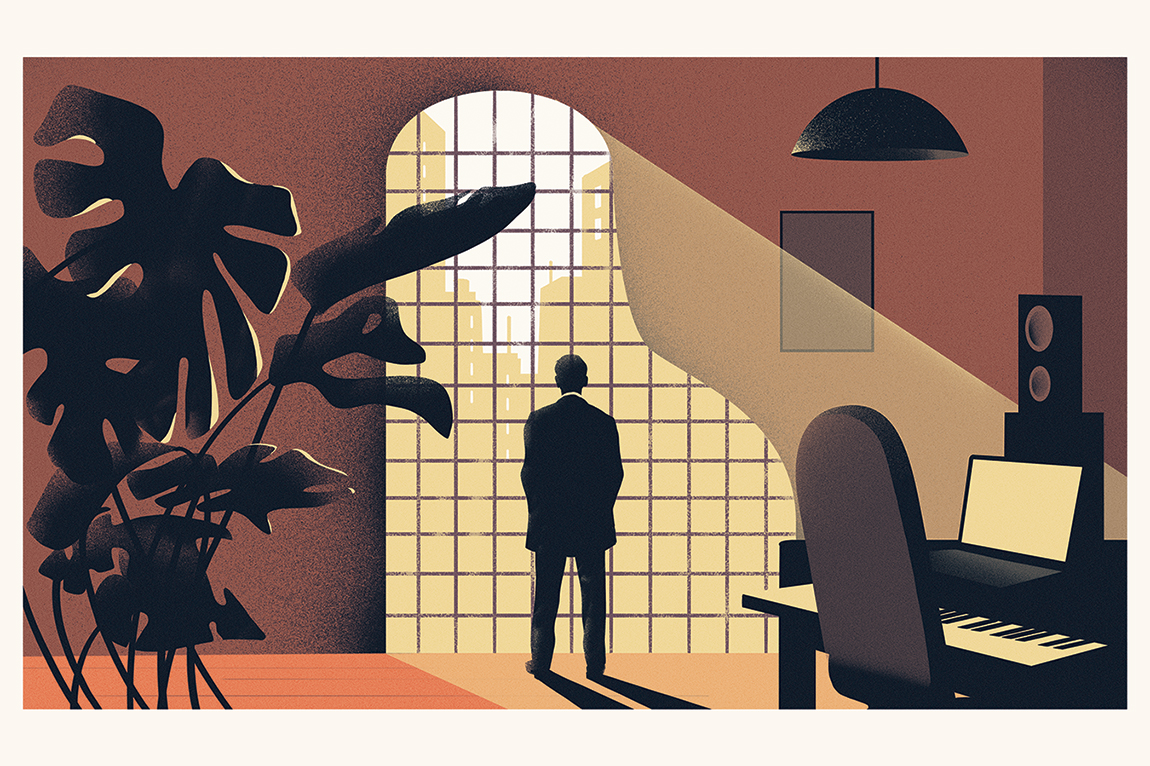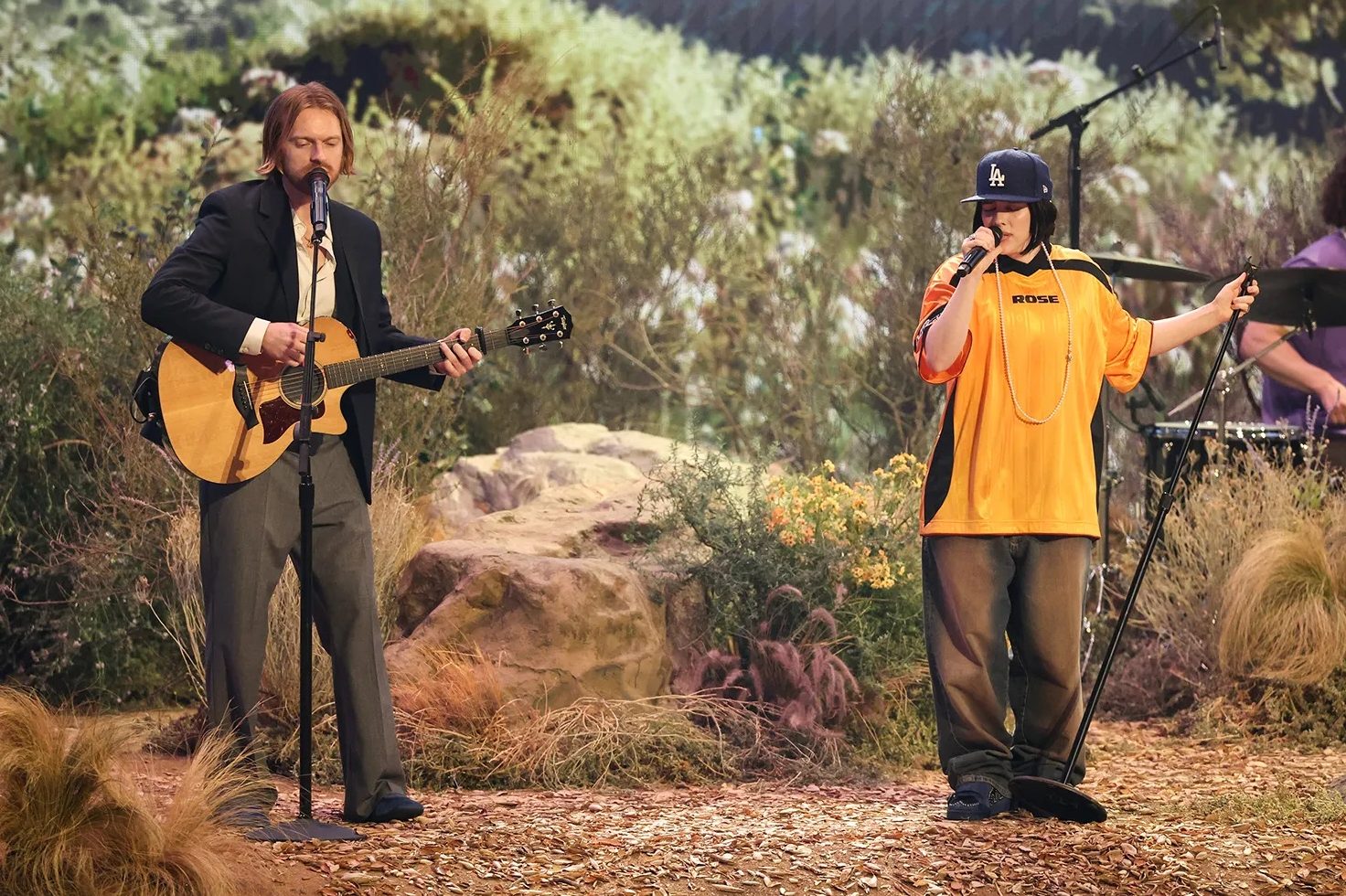On the Who’s 1965 single “My Generation,” the band’s twenty-one-year-old lead singer Roger Daltrey half-sang, half-sneered, “Hope I die before I get old.” The song, written by the then-twenty-year-old Peter Townshend, has remained a classic for nearly sixty years, boasting both a fantastic tune and unforgettable lyrics. Yet even as the Who continue to tour the world — often in the company of that invaluable accessory for any self-regarding rock band, a full orchestra — it is now with self-aware amusement that the seventy-nine-year-old Daltrey and seventy-eight-year-old Townshend perform it. By any stretch of the imagination, they are now old (or at least “older”) men, and the deaths of their bandmates Keith Moon (who really did die before he got old, expiring at thirty-two from an excess of hard living) and John Entwistle (ditto, fifty-seven) proved that even pampered rock singers are not immortal.
Still, the Who remain a valid commercial concern, even though you’d struggle to name the last memorable album they released. The same, on an even grander scale, could be said of the Rolling Stones, whose drummer Charlie Watts died in August 2021, but who have now come together as a trio to release a new album, Hackney Diamonds; their first collection of new material in eighteen years. That the lead single, “Angry,” is a tub-thumping blues rocker that led over-excited critics to call it the Stones’ best release since the Seventies suggests that the LP (as they would no doubt want it to be called) will be thrilling, but the lyrics suggest that Jagger — never the most self-aware of men — is opening himself up to ridicule. When the eighty-year-old snarls, “We haven’t made love in a month and I want to know why,” the answer might come in the song’s outro, when he sings, “I’m still taking the pills and I’m off to Brazil.” Meanwhile, Jagger may once have heard “a melody ringing in my brain,” as he sings in the infectious chorus, but the unkind might ask if it’s now merely tinnitus.
The Stones, though, continue to function — despite the fact that Keith Richards has now taken on the look of an Easter Island statue, desecrated but solemnly standing — while many of their peers are suffering from the undignified ravages of age. Elton John showily retired earlier this year after an extended farewell tour, although he has carefully not ruled out “one-off appearances,” so if you’re mourning the absence of the artist formerly known as Reg Dwight from a stadium near you, hang tight and he’ll probably be back in a year or two. Madonna, whose face has come to resemble that of a spoilt pedigree cat thanks to the fillers and Botox that she has had applied to it, was seriously ill earlier in the year with a bacterial infection, and the sixty-five-year-old has described herself as “lucky to be alive.” Even as she prepares for her postponed Celebration tour, she has posted strangely poignant images of herself on Instagram with a bandaged knee, suggesting that some other affliction has now beset her; the Queen of Pop, once a scandal-baiting icon, has now shown that she is also only mortal, after all.
Since the beginnings of the modern music industry as we know it in the Sixties, it has been a given that, one day, its most famous (and lucrative) practitioners will die. Yet excluding such tragedies as the premature deaths of John Lennon, Freddie Mercury and Kurt Cobain, the longevity of many of the greatest rock stars in the world is a remarkable thing. If you had slept for the past fifty years and awoke, long-haired and blinking into the new world, it would be a source of comfort to you to discover that the likes of Paul McCartney, the Who, Jagger and Richards and Bob Dylan were not only alive, but still making music and still continuing to have contemporary relevance, just as Bruce Springsteen, Neil Young and three-quarters of Pink Floyd still walk among us. Undeniably, their main appeal is that of nostalgia, but there is still something remarkable, and heartening, about their literal and metaphorical survival.
Of course, age is creeping up with the superstars of the industry. David Bowie’s death at the beginning of 2016 from liver cancer, at sixty-nine, did not just lead to mass mourning because of his extraordinary talent and charisma, but a sudden, grim realization that songs audiences had come to expect to see their writer perform every couple of years would now never be played live again; there have been occasional attempts by Bowie’s old touring band to play with guest vocalists, but without wishing to denigrate their remarkable talent, Bowie’s songs without Bowie can only feel like, as the man himself once contemptuously sang, “same old thing in brand new drag.”
2016, in fact, was a grim reminder that even the best-loved musicians are mortal. In addition to Bowie, Leonard Cohen, Prince and George Michael all shuffled off this mortal coil, devastating millions of admirers in the process. The death of Tony Bennett at the remarkable age of ninety-six in July this year was a farewell not just to a much-loved icon, but to an era that had encompassed Sinatra, the Rat Pack and a whole musical tradition that has now largely disappeared, despite Lady Gaga’s noble occasional efforts to resurrect it. And despite the vast amounts that any self-respecting star spends on healthcare, dietary supplements and fitness trainers, all of them know that the chimes at midnight are not — cannot be — too far away.
Yet if you’ve spent most of your adult life enjoying the adrenaline of performing to strangers, it is very hard to give up the drug. Paul Simon announced his retirement from touring and recording in 2018, citing hearing loss and a wish to be nearer his family. However, he returned last year with a well-received new work, Seven Psalms, and played a guest appearance at the Newport Folk Festival that July; the previous day had seen Joni Mitchell, who many had assumed had given up live performance forever, return to perform with Brandi Carlile, playing a thirteen-song set of her own material and covers. She played a full headline set in Washington State this year, and few would bet against similar appearances taking place in the future, either.
Popular music is in a strange place at the moment. The world-conquering Taylor Swift aside, there are comparatively few younger acts with wide-ranging demographic appeal; the kind of people who are contentedly paying hundreds of dollars to see, say, Paul McCartney and Bruce Springsteen are not going to do the same for the Killers or the 1975. The album is dead; live performance is the only way that musicians are going to make their money. And when one’s body starts to fail, as even those of the healthiest and most self-preserving musicians will, then ex-wives and Florida condos and lawyers are only going to be kept happy with the sales of their back catalogs to shadowy private companies which will then license their songs ruthlessly, devaluing their music for future generations without qualm.
It is pleasing, and surprising, then that the Stones, the Who and others are still making music in 2023. Jagger, never noted for a lack of interest in the financial side of the business, has made it clear that he intends to carry on performing and recording as long as he can, and it is hard to think of a single major act of his generation that has fully retired from the business. And yet there is a fearfulness behind the bravado, both from the most famous musical acts that have ever existed and from their millions of adoring fans. Every account of a heart bypass or, in Mitchell’s case, slow recovery from a 2015 brain aneurysm, produces worry and uncertainty as to their longevity. In our increasingly secular age, we worship rock stars as our deities, as figures who inspire our hopes and dreams and fantasies of excess. Yet as they reveal themselves to be increasingly frail and fragile human beings, our concern can only go hand in hand with disappointment as, eventually, they will leave us, and that the inevitable truth of Townshend’s hope will be confirmed forever.
This article was originally published in The Spectator’s November 2023 World edition.


























Leave a Reply